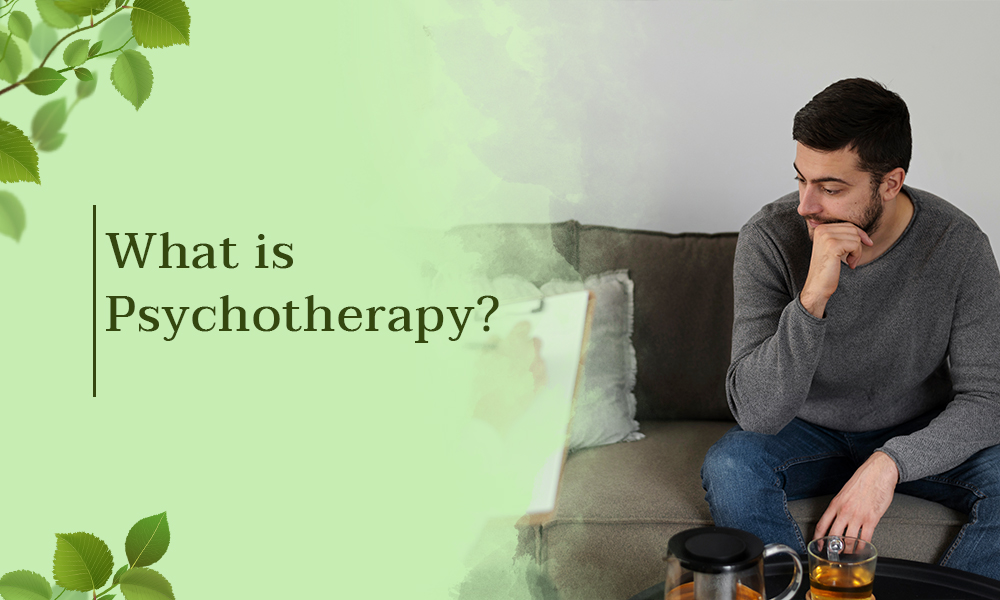- Jofa Tower 5th floor, SB-23, Block 13 C, Main University Rd, Gulshan-e-Iqbal, Karachi.
- +92 322 3746726
- tis@transformation.com.pk
What is Psychotherapy?

THE POWER OF THOUGHTS AND BELIEFS
April 20, 2024
How Does Psychotherapy Work?
May 6, 2024Psychotherapy is a therapeutic approach in which a qualified professional counselor communicates with the client. This treatment consists of regular communication and multiple sessions with a trained psychotherapist. Psychotherapy is an unrivaled treatment for those who are not mentally sick but experience some emotional and psychological issues in their life. In this therapy, the psychotherapist communicates with the client and listens to his or her thoughts to examine behavioral difficulties. A professional psychotherapist's major role is to advise the client on his or her behavior and way of thinking. Psychotherapy is extremely beneficial to a client’s mental health and personality development.
Understanding the Core Principles:
Psychotherapy operates on several fundamental principles. These include the importance of forming a therapeutic relationship based on trust and empathy, exploring past experiences and their impact on current functioning, and using evidence-based techniques tailored to the individual's specific needs.
Navigating the Therapeutic Journey:
Psychotherapy starts with an initial assessment in which the client and therapist work together to set goals and create a treatment plan. The number and length of sessions can vary based on the type of issues being addressed and the selected therapeutic technique.
Different Psychotherapy Modalities:
Psychotherapy includes a wide variety of modalities, each with its distinct approach and methods. From psychodynamic therapy, which explores unconscious patterns and conflicts, to cognitive-behavioral therapy (CBT), which focuses on changing negative thought patterns and behaviors, individuals have access to a variety of therapeutic options tailored to their specific needs. Some of the most widely practiced modalities include:
Cognitive-Behavioral Therapy (CBT): CBT encourages adaptive coping mechanisms and problem-solving abilities by recognizing and addressing maladaptive thought patterns and behaviors.
Psychodynamic Therapy: Based on psychoanalytic ideas, psychodynamic therapy looks at childhood traumas and unconscious conflicts to understand current issues and behavioral patterns.
Humanistic Therapy: Within a supportive therapeutic partnership, humanistic approaches like person-centered therapy emphasizes self-exploration, personal growth, and the actualization of one's potential.
Mindfulness-Based Therapy: Drawing from mindfulness practices, therapies like Acceptance and Commitment Therapy (ACT) and Mindfulness-Based Cognitive Therapy (MBCT) encourage present-moment awareness and acceptance to reduce psychological distress.
The Therapeutic Relationship's Function:
The therapeutic relationship between the therapist and the client is essential to psychotherapy's effectiveness. Through this partnership, people can acquire perspective on their experiences, explore their deepest thoughts and feelings, and strive toward positive change in a safe and accepting environment.
Embracing the Benefits:
The benefits of psychotherapy are vast and far-reaching. Apart from treating symptoms, therapy can result in heightened self-awareness, strengthened interpersonal bonds, stronger coping mechanisms, and increased general well-being. Through resolving fundamental problems and encouraging personal development, psychotherapy enables people to lead more genuine and satisfying lives.
Breaking Down Stigma:
Despite its effectiveness, psychotherapy still faces stigma and misconceptions in society. However, by raising awareness, challenging stereotypes, and promoting open dialogue, we can break down barriers to mental health care and create a more supportive and inclusive environment for all.
Looking Towards the Future:
Future-focused, the psychotherapy field is still developing and innovating. Technological innovations like virtual reality and teletherapy are increasing access to care and reaching new demographics. Furthermore, the significance of addressing systemic disparities that affect access and outcomes and incorporating mental health treatments into primary care settings is becoming increasingly apparent.

What Issues Can Psychotherapy Help with?
Although psychotherapy takes many different forms, all of them aim to support individuals in overcoming obstacles, creating coping mechanisms, and leading happier and healthier lives.
A skilled and experienced psychotherapist who is certified to evaluate, diagnose, and treat mental health disorders might be of assistance to you if you are exhibiting signs of a psychological or psychiatric disorder.
Several mental health issues are treated with psychotherapy, such as:
- Addiction
- Disorders related to anxiety
- Bipolar disorder
- Depression
- eating disorders
- Compulsive-obsessive behavior
- Phobias
- Post-traumatic stress disorder
- Substance use disorder
Psychotherapy has also been demonstrated to assist individuals in managing the following:
- Chronic pain or serious illnesses
- Divorce and break-ups
- Grief or loss
- Insomnia
- Low self-esteem
- Relationship issues
- Stress
Conclusion:
In a nutshell, psychotherapy is a ray of hope and healing for people attempting to make their way through the complexity of the human psyche. Therapy provides a route to increased self awareness, resilience, and well-being via cooperation, compassion, and evidence-based methods. By accepting its tenets and dismantling obstacles, we can establish a society in which mental health is respected, given top priority, and open to all.




